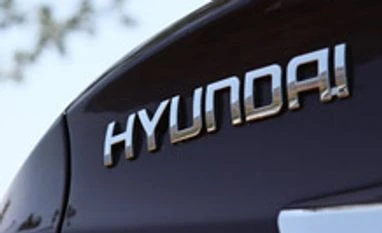A recent move by Hyundai to transport cars through sea for the domestic market has cheered ports.
This virtually unlocks a huge potential for coastal shipping in India, especially for automobiles cargo. Hyundai Motor India Ltd recently shipped 800 cars made at its Chennai plant to its markets in western India using a roll on-roll off vessel. The cargo was loaded at Chennai Port and it reached Pipavav Port in Gujarat last week.
This virtually unlocks a huge potential for coastal shipping in India, especially for automobiles cargo. Hyundai Motor India Ltd recently shipped 800 cars made at its Chennai plant to its markets in western India using a roll on-roll off vessel. The cargo was loaded at Chennai Port and it reached Pipavav Port in Gujarat last week.
India has already established itself as a major automobile manufacturing hub, with most vehicles sold in the country being made domestically. This necessitates huge cargo movement (by rail and road networks) from the manufacturing clusters (in and around Chennai, Pune, Gujarat and the National Capital Region) to the consumption centres spread across the country.
Hyundai Motor India Ltd (HMIL) recently shipped 800 cars made at its Chennai plant to its markets in western India using a Roll on-Roll off (Ro-Ro) vessel called MV IDM Symex. The cargo was loaded at Chennai Port and reached Pipavav Port in Gujarat last week.
Chennai Port’s Deputy Chairman Cyril C George said, “We see a lot of potential in this kind of movement of cargo. It is cheaper than the road route, and we are expecting the ministry of shipping to announce an incentive scheme for such traffic soon, and that would give further impetus to transshipment.”
Chennai Port is already in talks with Nissan and Ford, among others, to use the sea route to transport cars within the country. George said Hyundai had committed to continue with its shipments at Chennai Port.
Chennai Port is already in talks with Nissan and Ford, among others, to use the sea route to transport cars within the country. George said Hyundai had committed to continue with its shipments at Chennai Port.
A Janardhana Rao, advisor (Sagarmala), ministry of Shipping, told Business Standard a scheme to boost coastal shipping was on its way. There might be a cash incentive of Rs 3,000 per car to boost coastal shipping and so that car manufacturers adopt a more eco-friendly mode to transport their cargo.
Ravi M Parmar, chairman of Kandla Port Trust, said there was a 40 per cent concession in cargo-related charges in coastal shipping at all major ports. “The cost of transporting a car basically works out to be around Rs 4,500 per car or something. Now, with the shipping ministry incentive on the anvil, it would become very affordable for automobile players,” he said.
Kandla Port is in talks with Maruti Suzuki India and Ford India to start container traffic movement at the port. However, Parmar clarified that nothing was concrete yet. “We have not been focusing on car movement at our port. But now with Gujarat becoming a major production hub, we are now looking at opportunities in the sector,” he said.
More From This Section
Pipavav Port, which already handles Ford India’s export, said the incentive scheme would manufacturers to pull cargoes off roads and use the sea route.
"The volumes that can be handled in a sea vessel, a Ro-Ro vessel here, are much larger compared to what can travel on trucks," said Keld Pederson, managing director, APM Terminals Pipavav, Gujarat Pipavav Port Ltd. As for revenue generation through this new route, Pederson felt that it was too early to comment.
"The volumes that can be handled in a sea vessel, a Ro-Ro vessel here, are much larger compared to what can travel on trucks," said Keld Pederson, managing director, APM Terminals Pipavav, Gujarat Pipavav Port Ltd. As for revenue generation through this new route, Pederson felt that it was too early to comment.
However, ports also feel that there is a risk involved in setting up dedicated or standalone terminals for cars. As Parmar said, “Chennai Port handles around 250,000 cars per year (for exports), and that is among the highest in the country. However, in case of exports, fluctuations in international currencies often change export policies. Therefore, this can be considered as a volatile cargo.”
Movement of cargo within the country, thus, appears to be a more assured cargo for ports. A major private port in Gujarat Mundra Port, which already handles MSIL's cargo, is upbeat on the scope too. A senior official at the port admitted that while transhipment had not started at the port, it has already approached companies like MSIL for the same.
With the Union Shipping Ministry relaxing cabotage policy, such transhipment has become possible. The cabotage policy in India till date allowed first preference to Indian flagships over cargo and foreign ships.
)